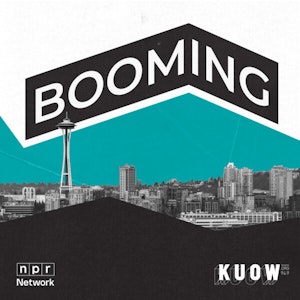Alec Cowan
Senior Podcast Producer
About
Alec Cowan is a senior podcast producer at KUOW, where he works on Booming and other podcast projects.
Alec has worn many hats at KUOW. He helped launch Soundside and brought many eclectic stories to the program, from a late-night patrol with real life superheroes to the sewing machine sounds of an artisanal sail loft. Additionally, he was previously a producer for The Record with Bill Radke and the Primed podcast.
Before joining KUOW, Alec worked in NPR's Story Lab, where he helped pilot the Louder Than a Riot podcast and assisted in producing a story on volunteerism in Iraq for Rough Translation. Originally from Grand Junction, Colorado, his roots in the Northwest begin in Eugene, where he studied English and philosophy at the University of Oregon and worked as a news reporter for NPR member station KLCC. He is likely neglecting his saxophone, growing book collection, and expanding personal project list in favor of boosting his online Xbox ranking.
He's proud to be KUOW's unofficial "boat guy."
Location: Seattle
Languages Spoken: English
Pronouns: he/him/his
Podcasts
Stories
-
Will natural gas be turned off in Washington state? Voices for and against Initiative 2066
Soundside host Libby Denkmann spoke with voices for and against Initiative 2066, which would prohibit penalties for using natural gas in construction, limit the ability of building codes to discourage the use of natural gas, and keep utility officials from making planning decisions that would lead to natural gas being cost-prohibitive
-
Death, taxes, and horseplay
-

'The Adding Machine' asks if AI has a future in the theatre
-
Yakama Nation energy project hits a snag as utilities struggle with green energy expansion
-
From SeaTac to the public library, high-profile hacks are plaguing the region. Why?
-
Hear it again: Ethical mushroom foraging
-
New study finds pandemic lockdowns prematurely aged teenage brains
-
Initiative 2066: Why proponents say you should vote 'Yes'
-
Initiative 2066: Why opponents say you should vote 'No'
-

Asahel Curtis' photography continues to suprise archivists nearly a century later


